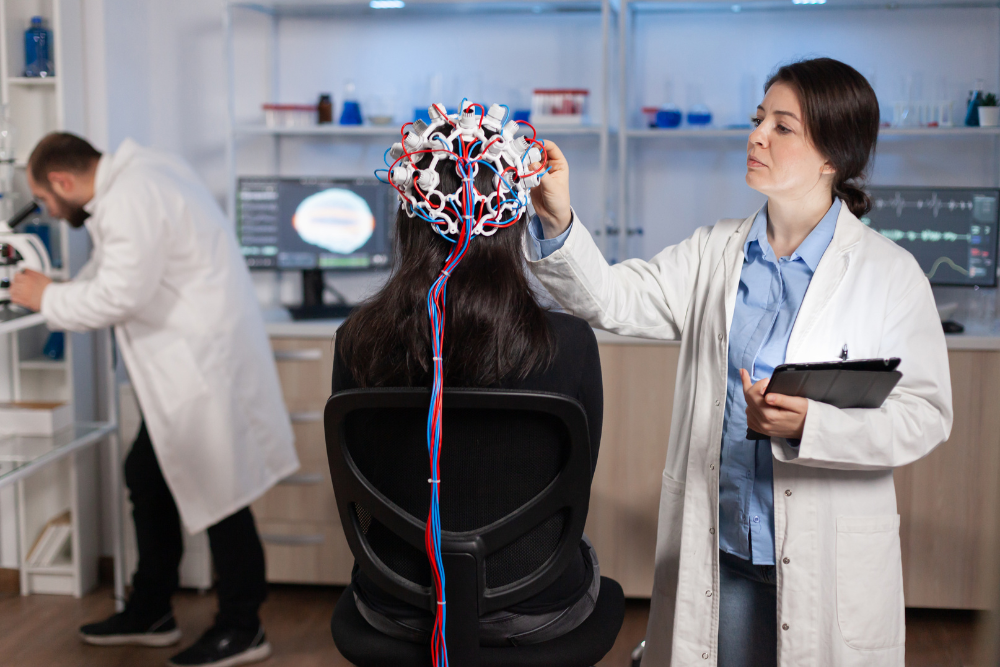Overview
This specialized branch of dentistry goes beyond routine dental care. Oral and maxillofacial surgeons possess extensive training and expertise in treating complex conditions affecting the jaw, face, and oral cavity. We handle a multitude of issues, including:
- Dental Implants: Replacing missing teeth with biocompatible titanium screws for permanent, natural-looking results.
- Jaw Surgery: Correcting misaligned jaws and facial deformities for improved function and aesthetics.
- Wisdom Teeth Removal: Safely extracting impacted or problematic wisdom teeth to prevent complications.
- Facial Trauma Repair: Reconstructing facial structures after accidents or injuries, restoring both function and appearance.
- Head and Neck Cancer Surgery: Removing tumors and reconstructing affected tissues for optimal outcomes.
- Oral and Facial Pathology: Diagnosing and treating diseases and conditions affecting the mouth and face.
- Cleft Lip and Palate Surgery: Correcting congenital malformations of the lip and palate for improved speech and facial aesthetics.
- Dental Cosmetics: Enhancing your smile with procedures like veneers, crowns, and gum contouring.
Common Problems We Address
- Missing teeth, dental pain, or difficulty chewing
- Misaligned jaws, facial asymmetry, or overbites/underbites
- Impacted or problematic wisdom teeth
- Facial injuries or fractures
- Oral cancer or tumours
- Diseases or conditions affecting the mouth and face
- Cleft lip and palate, or other congenital facial deformities
Common Symptoms You May Experience
- Persistent pain or discomfort in the mouth, jaw, or face
- Difficulty chewing, speaking, or breathing
- Swelling, redness, or bleeding in the mouth or face
- Loose teeth or changes in bite alignment
- Facial numbness or tingling
- Visible deformities or asymmetry
- Incase of oral cancer, you may experience lumps, tongue pain, or difficulty swallowing.
Treatment Options
We tailor treatment plans to your specific needs and preferences, utilizing the latest advancements in oral and maxillofacial surgery. Our diverse range of options includes:
- Minimally invasive techniques: Reducing downtime and discomfort through keyhole surgeries and advanced technology.
- Computer-aided surgery: Ensuring precision and predictability for complex procedures.
- Advanced facial reconstruction: Restoring function and aesthetics after trauma or injuries.
- Dental implant placement and restoration: Providing functional and beautiful solutions for missing teeth.
- Jaw surgery: Correcting misalignments and improving bite function.
- Laser dentistry: Offering precise and comfortable treatments for various oral concerns.
- Custom-designed prosthetics: Restoring facial structures and enhancing appearance after cancer surgery.
When to Consult a Doctor ?
Don't hesitate to seek expert advice if you experience any persistent or concerning symptoms in your mouth, jaw, or face. Early diagnosis and intervention can significantly improve your outcomes and prevent future complications. Consult an oral and maxillofacial surgeon if you have:
- Any of the symptoms listed above last for more than a few weeks.
- Difficulty performing daily activities due to jaw misalignment or oral issues.
- Visible facial deformities or injuries.
- Concerns about missing teeth or dental aesthetics.
- Suspected oral cancer or tumors.
General (FAQ) For OMFS
The surgery for a cleft palate or lip is called cleft lip and palate repair. It involves reconstructing the affected area to close the gap, improve function, and achieve a more normal appearance.
Cleft lip and palate surgery are typically performed in stages. Cleft lip repair is often done between 3 to 6 months of age, while cleft palate repair may be performed between 9 to 18 months. Additional surgeries may be needed as the child grows.
The three main types of dental implants are endosteal implants, subperiosteal implants, and zygomatic implants. Each type serves specific purposes and is chosen based on individual patient needs.
Dental implants can last for a lifetime with proper care and maintenance. Regular dental check-ups, good oral hygiene practices, and a healthy lifestyle contribute to the longevity of dental implants.
Tooth implants are generally considered safe and have a high success rate. However, it's crucial to consult with a qualified dental professional to determine individual suitability and discuss potential risks.
Jaw surgery, also known as orthognathic surgery, involves repositioning the upper and lower jaws to correct bite issues, facial imbalances, or other jaw-related problems. The procedure is performed under general anesthesia and may involve reshaping the jawbone.
Patients typically experience some discomfort after jaw surgery, which can be managed with prescribed pain medications. The severity of pain varies among individuals, and healthcare providers work to minimize discomfort during the recovery period.
Wisdom teeth removal is often done under local or general anesthesia, minimizing pain during the procedure. Some discomfort and swelling may be experienced post-surgery, but pain is usually manageable with prescribed medications.
Recovery time after wisdom tooth removal varies, but most people can resume normal activities within a few days to a week. Full healing may take a few weeks, and adherence to post-operative care instructions is essential.
Wisdom teeth are often removed to prevent potential issues such as impaction, crowding, and infection. Removal is recommended when these teeth pose a risk to oral health.
The healing time for facial trauma varies based on the type and severity of the injury. Minor injuries may heal in a few weeks, while more complex trauma may require several months for complete recovery.
The treatment of facial trauma depends on the nature and extent of the injury. It may involve surgical procedures, such as fracture reduction, soft tissue repair, or reconstructive surgery, performed by oral and maxillofacial surgeons or plastic surgeons. Postoperative care and rehabilitation are essential components of the healing process.














